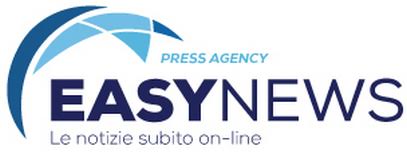
Noncommunicable diseases must be the cornerstone of all health policy especially in the age of perma-crisis
Statement to the press by WHO Regional Director for Europe, Dr Hans Henri P. Kluge, at the Global High-Level Technical Meeting on Noncommunicable Diseases in Humanitarian Settings
Copenhagen, 27 February 2024
Good evening.
I’d like to start by telling you about the time when I visited northern Ukraine near the border with Belarus, not long after full-scale war began two years ago.
Every single pharmacy and primary healthcare clinic I saw was damaged or destroyed.
I spoke to an older lady who no longer had access to vital medicines to manage her illness, and she didn’t have enough money to evacuate to a safer part of Ukraine.
So, she stayed put to await death – either from the war or her illness, whichever came first.
This story is not unique. It’s repeated millions of times in natural or man-made emergencies the world over, and it’s the reason we are all gathered here today.
Collectively, it has taken countries in the European Region a few years to get used to being in a state of perma-crisis, but now is the time to actually do something about it – and the best way to ensure healthy and happy societies is by making them more resilient.
So how do we do that?
There are many ways to build resilience and save lives. Chief among them is preventing and treating the scourge of non-communicable diseases – which account for a staggering 9 out of 10 deaths in the European Region.
I am talking about cancer, diabetes, chronic respiratory and heart conditions, to name just four – diseases that will affect almost every single one of us at some point in our lives.
As our region – and indeed the world – faces an ever-growing list of emergencies and disasters, both natural and man-made, we risk forgetting the silent majority who suffer from chronic conditions that demand regular or specialized care.
In Ukraine, the example I began with, NCD-related deaths continue to increase during the ongoing war. We saw the same amid the devastation of the Turkiye earthquakes little more than a year ago. People who have for years lived with a heart or respiratory condition, are suddenly at acute risk of dying because of damage to health infrastructure or reduced access to medicine and treatment.
Quite simply, an emergency greatly increases the health risks for NCD patients and other vulnerable people.
- In Italy, two-thirds of COVID-19 patients who died in hospital had hypertension, and one-third had type 2 diabetes.
- In Spain, more than 40 percent of COVID-19 patients with the most severe clinical manifestations, had cardiovascular disease.
- During extreme heatwaves, excess mortality shoots up, and those who die are most often the vulnerable, the sick and the elderly.
After hearing the Ukrainian lady’s story, working together with the Ukrainian Ministry of Health, WHO helped install medicine dispensers in the area – a simple yet effective way to ensure access to potentially life-saving medicines.
We’ve also scaled up roaming emergency medical teams, incorporating mobile labs, to reach, diagnose and treat people faster amid emergencies – including those with NCDs.
As co-host of this important event, alongside the Government of Denmark, WHO/Europe is committed to preventing and treating NCDs at all times, in all emergencies and disasters, as we strive to build more shock-resistant societies in our age of perma-crisis.
Not doing so will be nothing short of a death sentence for millions of people with chronic conditions caught up in an emergency through no fault of their own.
ENDS
LINKS (including downloadable content):
- Press release available here
- Why we need to strengthen health responses in humanitarian emergencies – op-ed by the Regional Director
- Special Initiative on NCDs and Innovation
- Türkiye-Syria – protecting the overlooked & vulnerable after the earthquakes
- Managing diabetes while fleeing from the war in Ukraine – Artur's story
- CONTENT: videos from Bangladesh, Philippines, Türkiye, Saint Vincent, Sudan, South Sudan
CONTACTS:
Bhanu Bhatnagar, bbhatnagar@who.int
WHO/Europe Press Office, eupress@who.int
This information was brought to you by Cision http://news.cision.com
If you would rather not receive future communications from WHO Regional Office for Europe, please go to https://optout.ne.cision.com/en/eJCp7dYGHt7x1d4kXUZ9BQdWZRfphqdAY6uMu3ZE37tvE8r2TTtR47fSmWAQCH1v9eQpXqieAEXTpqAJHEmfTh4sGMfnsfAHR5ZhQTV4dAaqvW2xwzqy2yC1uCiYUVfDNi5.
WHO Regional Office for Europe, Marmorvej 51, Copenhagen, 2100 Denmark

